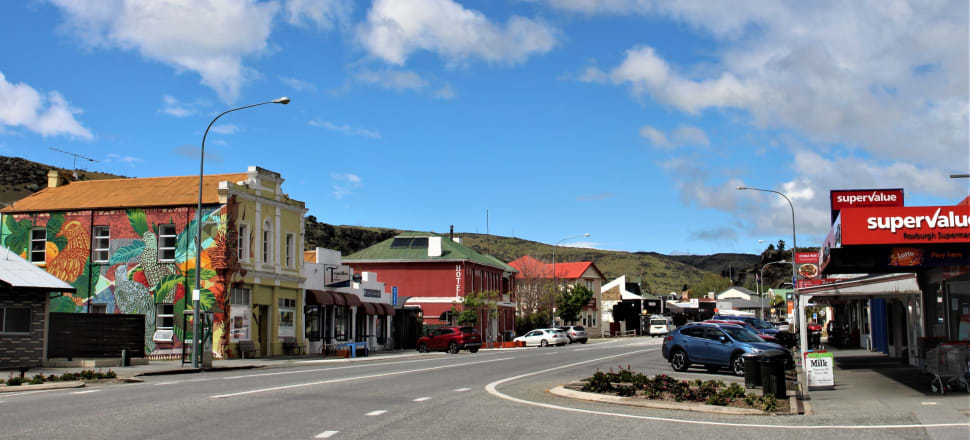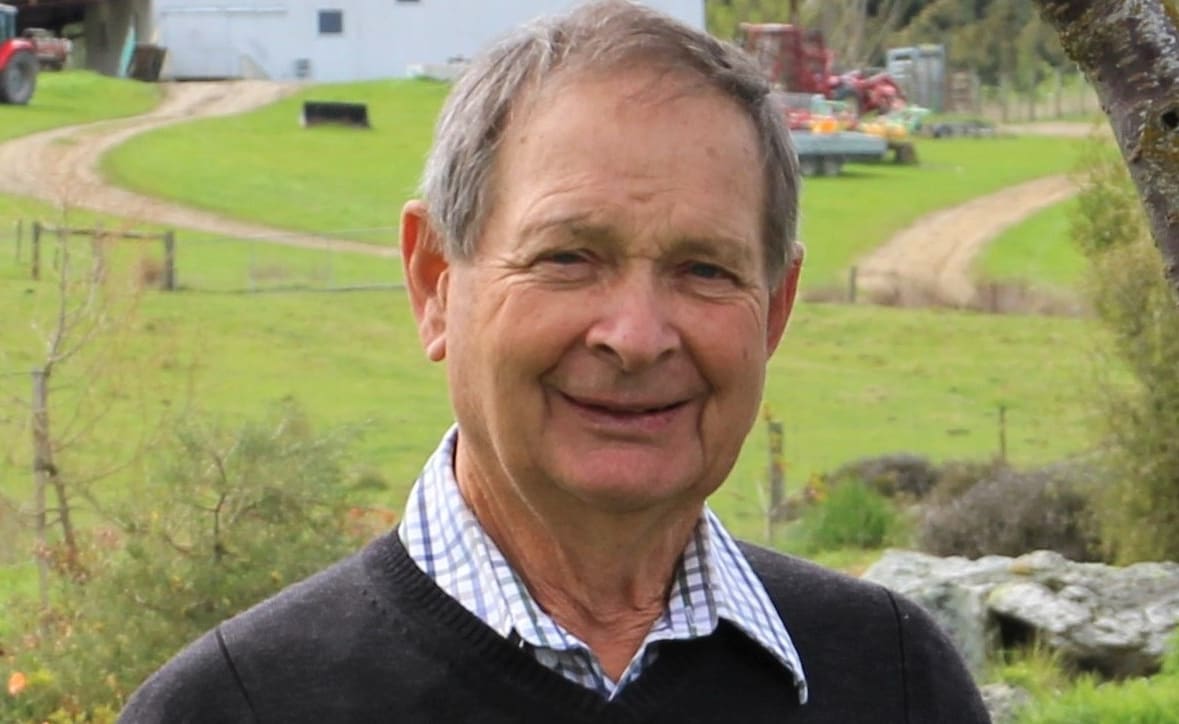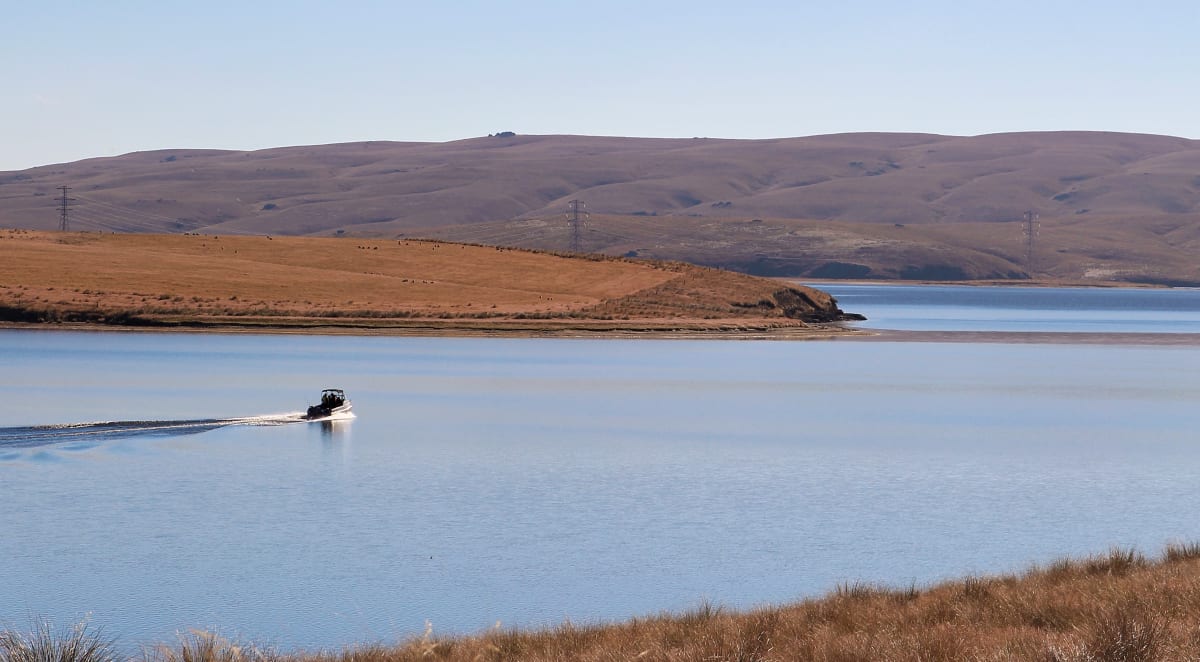
The prospect of Roxburgh having a second go-around as the host town of a major hydro project is starting to feel more real for residents as the government’s Lake Onslow scheme inches ahead
Massive disruption will be on the cards for residents of Central Otago’s Teviot Valley and a “treasure” lost if the government proceeds with the Lake Onslow pumped-hydro scheme, a community leader says.
Compensation should reflect that, says 78-year-old Pat Garden, and it should be structured to create benefits from the scheme that outlive the “boom and bust” of the build.
“The community needs to be recognised as a stakeholder and expects a shared benefit to compensate for the negative impacts,” he says.
Although there will be positive short-term benefits for such businesses as accommodation, hospitality and transport providers, he doesn’t expect there to be many permanent new jobs and school rolls that rise during construction will fall again.
Residents of the valley have been down the “disrupt and depart” road before. The Roxburgh dam hydro project took about seven years, opening in 1956. Garden says the community at the time received virtually no recognition for the disruption caused.
What is proposed this time is a dry-year-plus pumped-hydro electricity scheme incorporating a dam 90m high at its maximum above the Clutha/Mata-Au River at Lake Onslow, an underground powerhouse 80m below river level, at least 16km of tunnel and a possible riverside reservoir. The projected cost of $4 billion is widely believed to be a significant underestimate.
Garden is a high-country farmer who chaired the Otago Conservation Board for five years, led research groups and now, as he eases from the tractor into retirement, co-ordinates two community groups.
He acknowledges the country’s serious need for energy storage but has grave concerns for the community.
Renewable sources such as wind, solar and other hydro schemes are vulnerable to natural fluctuations and further raising Lake Onslow appears an ideal dry-year solution, he says.
In the winter of 2020, when the government announced it had allocated $100 million to look at the feasibility of the NZ Battery Project and other green-energy possibilities, it came as a blow.
The expansion of Lake Onslow would flood part of the Garden family’s 2296ha sheep and beef property and for Pat and wife Marcelle and many other more senior valley residents it brings back unsettling memories of the Roxburgh dam construction project.

Having first-hand experience of an enormous infrastructure project in your backyard spurred him to question the Ministry of Business, Innovation and Employment’s community consultation intentions.
“I was concerned the community was not being directly engaged. There was talk of an online survey to determine the impacts but I insisted more was needed.”
The ministry worked with him and a 60-strong Millers Flat “coffee-morning” group to get feedback from more than 80 residents to report to the government.
Influx of workers
Front of mind for many is the potential arrival of about 4000 workers - double the valley’s present population - and the effects of the construction work.
“It doesn’t matter where the tunnel goes, getting rid of the spoil is going to be huge. It has to be put somewhere by big trucks.”
Teviot Prospects, a separate community-led development organisation that helps facilitate local projects, is chaired by Garden. The ministry also consulted with it, the business community and local government to gather views on Onslow.
The quiet valley has attracted many retirees and has the country’s second-highest percentage of residents aged over 65.
They and local landowners report feeling uncertainty about the future. Older residents face the prospect of living out their autumn years in a construction zone and the most-affected farms have been “kneecapped” in terms of future planning, Garden says.
Compensation, he believes, should also reflect the loss of the unique Lake Onslow fishery and huts.
“I regard it as a treasure. It’s a national asset and very special to us. It will be changed forever.”
The establishment of a community trust to fund long-term projects has the widespread support of locals.
Central Otago District Mayor Tim Cadogan thinks such a trust should be for the good not just of the Teviot Valley but the wider area.
“If there is a compensation package, we need to be looking at it benefiting the future, not just the people of today. I would prefer to see the bulk of any package be in cash, which would be put in a trust for future use rather than into projects that are only short-term.”
He is optimistic of a positive outcome but concerned at the effect on the whole region.
“There will be impacts for everyone that will need to be managed as best as possible - things like the social impact of having a massive workforce come into the area.
“What will the effect be on local roads, both on their drivability and durability? What effects will the huge number of workers have on our already desperate housing market, or on the already struggling workforce situation?”

Housing for workers should be considered for permanent use after the project is complete, Cadogan says, be that for housing, tourist accommodation or horticultural support.
Although the interests of the community as a whole are front of mind, he has particular concern for affected landowners and the fate of Lake Onslow’s native freshwater fish, already predated on by trout.
Climate change
But Cadogan believes the project is looking increasingly like the only route to closure of the Huntly power station.
“It is crucial to our nation’s role in combating climate change that we do that.”
Whether this is a factor in the thinking of local people is unclear but he says many are not opposed to the Onslow scheme.
“I think there is a shift from ‘it will never happen’ to ‘I think this may well happen’ among the many I have been talking to. There seem to be more people cautiously in favour of the project than against it from my discussions.”
Roxburgh farmer Raymond Gunn, who served 12 years as chair of the Teviot Valley Community Board, agrees a trust could work and believes compensation would need to be “fairly significant”.
“We’ve all been talking and I think we’re all on the same page.”
He represents the community and farming interests on the NZ Battery Project technical reference group, which includes people with engineering and energy expertise, Greenpeace and iwi representatives and a youth advocate.
For farmers, payouts would need to reflect not only land value but also the uncertainty the proposal has meant for their businesses. Such matters as succession planning were now “up in the air” for many, Gunn says.
Roxburgh business owner Sally Feinerman believes it is difficult for people to form opinions so early in the process.
“I think people are keeping an open mind as they don’t know if it’s going to the next stage.”

A newly minted district councillor and returning member of the Teviot Valley Community Board, she too will be seeking the best possible outcome from the project.
Other ideas to provide a legacy are forming too. A second lake and upland reserve as an environmental offset is a concept University of Waikato hydrologist Earl Bardsley, who first conceived of the Onslow scheme, is keen on.
Uncertainty abounds
David Darby, the ministry’s energy projects and programmes manager, acknowledges the project would mean social and economic stimulus but also disruption.
He says there has been discussion about how the project could have an “enduring positive impact” through some form of legacy project but it is too early to delve deeper.
“Our investigations remain focused on understanding the feasibility of the scheme. However, it will be something we will want to return to in future discussions with the community if the Lake Onslow option proceeds to the next phase.”
At a ministry-hosted open day in Roxburgh during the weekend a brief presentation by Darby became an hour-long question and answer session as about 70 people quizzed him and colleagues.
He told the crowd although the government is likely to scope out other energy options, it wants the Onslow feasibility study to continue.
The ministry recognises uncertainty is challenging, particularly for landowners neighbouring the project, he told Newsroom.
“We are very aware of the effects this uncertainty has on planning farming operations and we are very grateful to them for working with us.”
Time frames for the proposal are also uncertain. If the next phase of the feasibility study goes ahead it is likely to take at least two years. Whether it proceeds will be decided after the presentation of a paper to Cabinet in December.
If from there the scheme goes ahead, the complex design work could involve “several years” of work, as would the build.
The consenting process is equally unclear, Darby says.
As the Resource Management Act stands, district councils manage resource consents for land use and regional councils manage consents for effects on land, water and air.
However, the government is repealing the RMA and enacting new legislation.
“Advice on possible consenting pathways for the Lake Onslow option will be included in the December Cabinet paper. This will be based on an assessment of the current regulatory environment and the evolving post-RMA regulatory environment.”
The ministry’s policy director for energy and resource markets, Susan Hall, says councils must take the existing national direction on renewable electricity generation into account when making decisions about renewable-generation projects.
“The Ministry of Business, Innovation and Employment, alongside the Ministry for the Environment, is revisiting this national direction to determine whether it is still fit-for-purpose and working to enable investment in renewable-electricity infrastructure over the next seven to 10 years while the RMA is reformed.”
Discussions with manawhenua regarding the scheme are ongoing, the ministry says. A spokesperson for Te Rūnanga o Ōtākou says it is too early to comment as the proposal is still being assessed.
Made with the support of the Public Interest Journalism Fund








